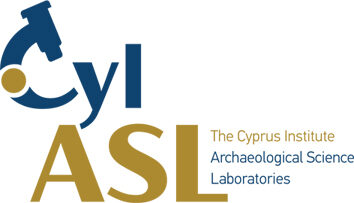
Keros is a small island in the heart of the Cyclades, where in the third millennium BCE a remarkable archaeological site shows evidence for some of the earliest urbanised characteristics in all of Europe. The A. G. Leventis Foundation has been supporting revolutionary research on Keros for the past fifteen years.
Keros is uninhabited today, but its central location was exploited by the inhabitants of the Cyclades to create a unique archaeological site that functioned both as a sanctuary and as a centre of technological innovation. People came from all over the Cyclades on long and dangerous journeys, bringing special items to offer to the sanctuary, and raw materials to transform into finished products. Metalworking in particular became the specialism of the site, where smiths invented new techniques to work in gold, silver, copper, bronze and lead.

An international team from The Cyprus Institute, the University of Cambridge, the British School at Athens, and other specialist research institutes worldwide has been working on the results and laboratory analyses of the most recent excavations, which took place in 2016-2018. The material found has been studied, and detailed and complex laboratory analyses undertaken, and now the research team is collating results for final publication and preparing for the next phase of the research.
Key personnel at The Cyprus Institute
Michael Boyd, co-director of the Keros Project
Michael Boyd joined the Keros Project in 2008 and since 2015 has been co-director, with Colin Renfrew of the University of Cambridge. Michael has worked extensively in the Cyclades, as well as the Peloponnese and elsewhere in southeastern Europe. He led the implementation of the innovative methodology adopted in the latest fieldwork campaign. He is currently editing the many publications being generated by the project.
Evi Margaritis, director of the environmental programme
Evi Margaritis has been involved with the Keros Project since 2005, when she designed the environmental recovery strategy for the 2006-2008 programme. In the current project she is the lead on all environmental analyses, which were a core part of the project design and cover everything from the analysis of charred plant material and animal bones to isotopes, paleoproteomics and lipids. She has worked on many projects in Greece and Cyprus and is lead editor on Volume XI in the Keros publications series.
Thilo Rehren, leading the scientific analysis of Keros’ extraordinary evidence for metalworking
As A. G. Leventis Professor of Archaeological Science and a world-leading expert in investigating ancient metalworking processes and technologies, Thilo Rehren is well-placed to investigate one of the most startling aspects of prehistoric Keros: its precocious and prolific evidence for innovation and volume production in metalworking.
